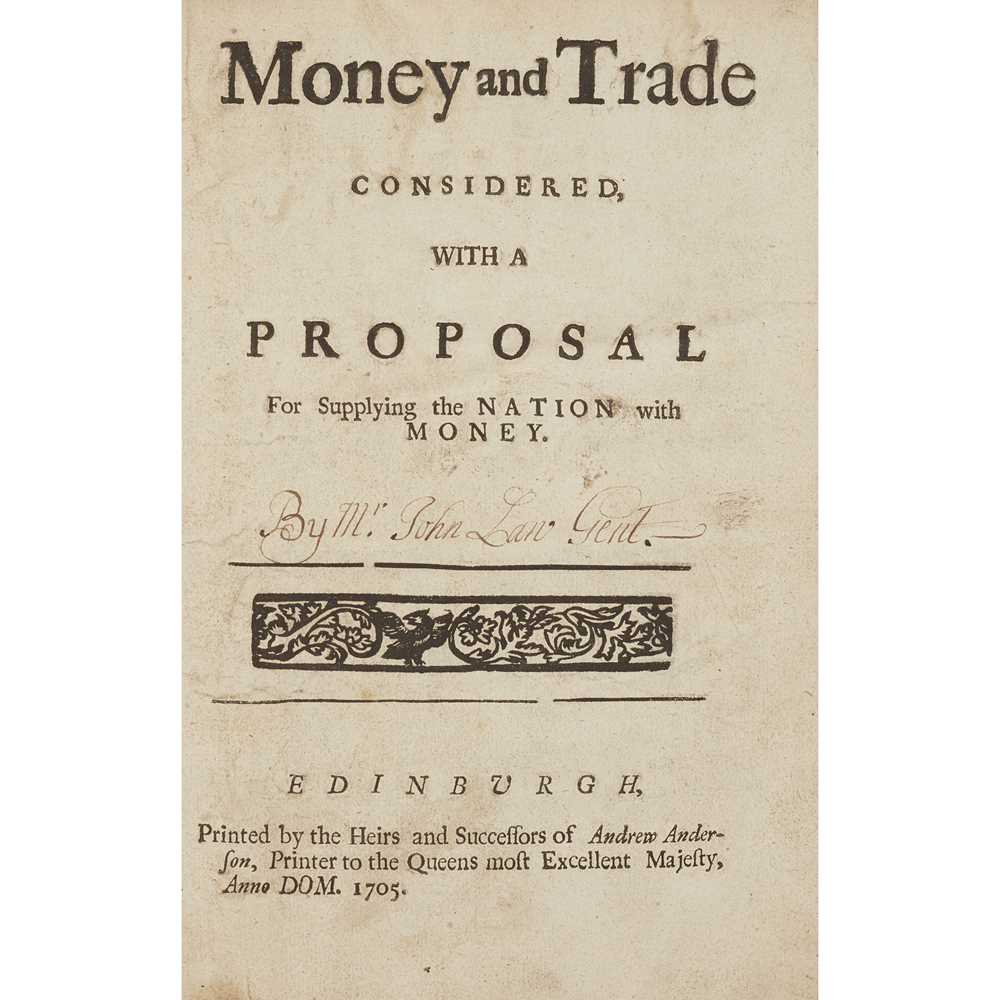Euro 9,000 +/-
a moment of silence on the thread
a pause in the cafe operation
a pondering
of an error in deliberation and judgement
... the work’s chief argument is that ‘an expansion in the money supply would produce an expansion in output, which [Law] considered erroneously would lead to an export surplus’ (ODNB)...
lyonandturnbull.com
Law, John Money and Trade Considered

with a Proposal for Supplying the Nation with Money. Edinburgh: Heirs and Successors of Andrew Anderson, 1705. First edition, small 4to, 120pp. [A2 misnumbered as '1' instead of '3'], stamps of the Institute of Bankers in Scotland to A2, ornament on the title page of eagle and vines, errata printed at foot of p. 120, early inscription on title 'By Mr John Law Gent.', contemporary calf, rebacked, early inscription on endpaper of 'Wat Paterson' and bookplate of the Library of the Institute of Bankers in Scotland, corners slightly rubbed [ESTC T097650 - 20 copies UK, 14 N. America; JISC 10 copies UK; Kress 2463]
Note: First edition of John Law’s seminal work on banking and monetary theory; rare, with only one copy traced at auction since 1975 (Sotheby's June 30, 1983, lot 604).
Published anonymously in Edinburgh after Law’s return from exile on the continent (he had been sentenced to death at the Old Bailey in 1694 for killing a man in a duel), the work’s chief argument is that ‘an expansion in the money supply would produce an expansion in output, which [Law] considered erroneously would lead to an export surplus’ (ODNB).
In the same year as Money and Trade Law unsuccessfully presented his idea of a land bank to the Scottish parliament; he eventually found approval for the idea in France, where a general bank was established at his prompting in 1716. The following year he oversaw the establishment of the Compagnie d’Occident, known to posterity as the Mississippi Company. The collapse of the resulting bubble in 1720 led to Law’s resignation and disgrace, and he died in poverty in Venice in 1729.
Adam Smith presented the Mississippi Bubble as a lesson in the perils inherent in Law’s advocacy of the unlimited expansion of paper money. Modern authorities from Schumpeter onward have emphasised the originality and importance of Law’s contributions to monetary theory. A major recent study of John Law concluded that:
‘Money and Trade is a majestic work towering over the contemporary writings of the early eighteenth century … Law … produced a highly innovating approach to macroeconomic theorizing embracing such new discoveries as:
1) The money-in-advance requirement.
2) The circular flow of income.
3) The further analysis of international inflation in a money supply and money demand framework.
4) The formulation of the law of one price for a small open economy.
These are all major theoretical contributions which … entitle Law to consideration as an exceptional monetary theorist’ (Murphy, John Law: Economic Theorist and Policy-Maker, 1997, p. 77). |





